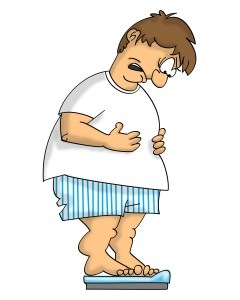
In the past few weeks I have heard two well-respected interviewers ask some well-known people questions like “How much weight have you lost?” or, “What do you weigh?”
The interviewers, Barbara Walters and Ann Curry, are excellent at their craft; highly intelligent; two people I admire; and thin, thin, thin. Neither of them looks like she has ever struggled – really struggled (I don’t mean losing five pounds to look better) with her weight. I’m talking about the kind of weight that makes your health care professional describe you as obese or morbidly obese and start waving red flags.
In both cases, the person being interviewed (Governor Chris Christie of New Jersey in Ms. Curry’s interview, Carrie Fisher in Ms. Walters’) declined to give a number – but rather said that s/he’s on the right path, feels better, and is dedicated to losing weight for his/her health. (Carrie Fisher is a paid spokesperson for Jenny Craig).
Good for them! No, a stand-up round of applause for them! I get it – both personally and professionally, that people who have never really had weight challenges don’t understand the difficulties associated with losing weight – real weight, not vanity weight. There are legions of completed and ongoing research studies that have looked and are looking for answers to why some people gain – and cannot easily lose – weight, even though their caloric intake and energy expenditure should allow them to do so.
Inherent in the question, “How much weight have you lost?” is the implication that there is a formula, an algorithm, and if it is just applied weight will fly off and stay off. Yea, right. Don’t we wish! Do people trying to lose weight function in a controlled space where all of the influences from the outside world coupled with their own unique physiology allow a predictable weight loss — a weight loss that can be easily sustained after it occurs? If that’s the case, my education has misled me and I’m lying to my clients. (On the record, I respect my education and I love working with my clients.)
So, here’s the thing. If someone you know – or have occasion to talk to – is in the process of losing weight, don’t ask him or her to put a number on it. Quite honestly, this could have a counterproductive effect because frequently people will lose inches, feel better, and have better clinical numbers (lipids, blood sugar) that may not initially be reflected in pounds lost.
Asking that dreaded question, “How much,” might just make the person think that a lack of significant change in numbers means that they are not succeeding. If they want you to know, they’ll tell you. Anyway, why do you need to know?
Losing weight is a long-term process. Healthy habits need to be created that will facilitate weight loss and then keep it off. Some people will never be slim – but they will be a whole lot healthier at a higher number on the scale if they are eating well and moving around.

Another good one! Next time, instruct your readership to ALSO hold off asking, “How much weight have you gained?”